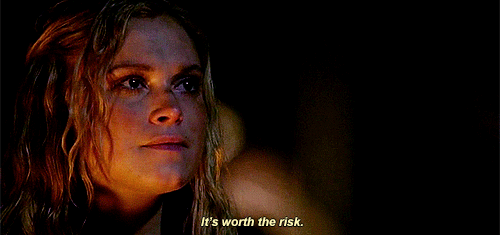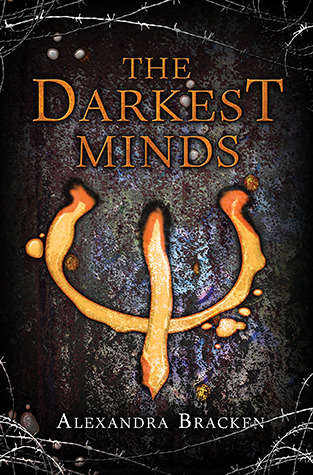VIGILANT UPDATE | March 2017
/ 9:19 AM




Hey Everyone! So I thought I would start doing little updates on what in the world is going on with Vigilant this year. I thought this would be the place to do this since I honestly suck at updating everything lately. I didn't
Written by A.J. Winter
Books I Read in 2016
/ 6:22 PM
This year was a downer of a reading year, but I did manage to read more than I did in 2015. For that, I am extremely proud of myself. I set the challenge of 52 books, but I only completed 29. Hey, I
Written by A.J. Winter
Saying Goodbye to 2016
/ 5:57 PM
2016 was hard. There, I said it. It was a stressful year for all of us, but I didn't let it get to me. We lost a lot of great people this year, but we can't let this one year define how we
Written by A.J. Winter
I'm never one to really write full-length book reviews, but this book. THIS BOOK. It was probably my favorite book of this year, I'm not gonna lie. Like, it was that good. SUMMARY FROM AMAZON In one devastating night, violin prodigy
Written by A.J. Winter
NaNoWriMo 2016
/ 6:12 PM
It's that time of year ago, the dreaded November has loomed upon us. Well, unless you're a writer and you're super pumped to write 50,000 words. I don't know about you, but November is the worst time of year to start a novel.
Written by A.J. Winter
How To Write: Dystopia
/ 11:27 AM




Hello Everyone! Welcome to my new series of blog posts on writing. I thought I would share my tips and tricks for writing dystopian fiction. This blog post will be geared more towards the Young Adult and possibly New Adult genre, but I'm
Written by A.J. Winter
A.J. Winter
Amanda, or A.J. Winter, is an avid reader and writer. She is a full-time college student who also writes on the website, Wattpad. She is a member of their Wattpad Stars program.
Comments system
ABOUT THE AUTHOR

A.J. Winter is the author of VIGILANT, a New Adult Dystopian novel that she began writing on Wattpad. On Wattpad, she is a member of their Wattpad Stars program. She is currently seeking representation for VIGILANT.
Currently Reading

LATEST POSTS
-
Hello Everyone! Welcome to my new series of blog posts on writing. I thought I would share my tips and tricks for writing dystopian fic...
-
Hey Everyone! It's that time of the month again, update time! This month has not been as productive as I would have liked it to h...
-
I'm never one to really write full-length book reviews, but this book. THIS BOOK. It was probably my favorite book of this year, I...
-
Writing is one of those processes that once you find the way your process works, that's how you write all the time. I'm not some...
-
Most writers always say they knew they wanted to be a writer from the time they were about six or seven. Not me. When I was six or seven,...
-
Writing is something I've expressed that I love. So I thought I would talk about writing on Wednesdays. For today's topic, I ...
-
Hi Everyone! My name is Amanda and welcome to my blog! I am so excited to be writing this blog and sharing my thoughts on things. I will...
-
2016 was hard. There, I said it. It was a stressful year for all of us, but I didn't let it get to me. We lost a lot of great people...
-
One of the things you will learn about me is that I have a not so slight obsession with Diana Gabaldon's Outlander . I discovered thi...
Follow For Updates
Archive
© A.J. Winter 2016. Powered by Blogger.















